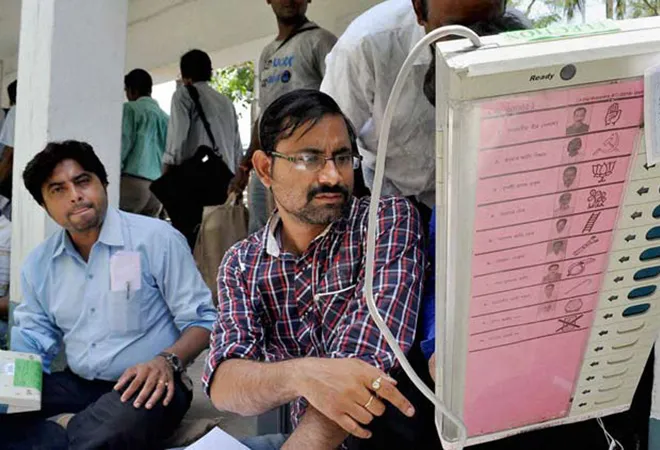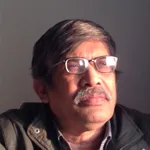
The Law Commission has also mooted the idea of one nation one poll and has asked various political parties to give their opinion. However, politicians are only one of the stake holders of Indian democracy and will give only the opinion of the parties they belong to. The other stake holders of the election process are the Election Commission, the judiciary, and most importantly the Indian voter or the citizen. Due consultations need to be made with all the other stakeholders before a decision is arrived on the same.
Official reasons
Let us first examine why the Law Commission made this proposal. And why the political spectrum is split with some opposition parties supporting it and some others opposing it. The commission says that the polls of State and Central government were held at one time, till the seventies. It wants to go back to the old system. It also says that before finalising its draft report on ‘One Nation, One Election’ the Law Commission had referred to the UK law ‘The fixed time Parliament Act 2011’. The NITI Aayog also cited the UK law while giving it’s support to the ‘fixed tenures’ theory for the Lok Sabha and the State assemblies. But one fails to understand why India should suddenly follow a British precedent in one area, when there are so many other contentious areas where it pays no heed to UK laws.
The Janata Dal (United), the Samajwadi Party and the Telangana Rashtra Samithi has supported the move while the Telugu Desam , the CPI, the Trinamool and the DMK have opposed the concept of one nation one poll. The opposition to the move by some parties has been largely on the premise that the concept is against the federal arrangement. But that is a weak argument, just like the proposal made by the Law Commission is without a sound reasoning.
Repeated validation can be tortuous
Whatever be the official reference document, the inspiration could not have been the laws of the United Kingdom. Rather, it was at the behest of the ruling party that this proposal was made, and understandably so. The BJP came to power in 2014, with a massive mandate. It had an absolute majority on its own and 4 times more seats than the biggest opposition party. Along with it’s allies, the NDA alliance had a comfortable 300 plus seats. In the next three years, it swept to power in 20 States. This was no mean feat considering that the party had significant presence in just half a dozen States prior to 2014. But it also lost elections in a few key States -- Delhi, Bihar, Punjab -- and barely managed to cobble up governments in Goa, Uttaranchal and Meghalaya. Also, it lost several by-elections and its numbers in the Lok Sabha dwindled, giving it a paper thin majority.
After the 2014 general elections, three to four States or Union Territories went to polls each year. The electioneering took its toll on the party, especially as it meant that the Prime Minister who was its star campaigner had to visit major constituencies both during the general elections as well as the State elections. It also meant that the party became answerable to all its decision makings each year and not once in five years. The demonetisation, the GST, the food price rise, the farmer distress and the cow slaughter lynchings came back on the spotlight in every State election as if it was the Prime Minister Modi and not the State Chief Minister who was fighting for validation. The BJP feels that by having one time election of States and the Central Government, it need not keep justifying its decision makings or performances repeatedly.
Periodic check helps corrective actions
But that is not in the interest of the citizen, nor the political party in power. As citizens, we find that repeated polls have helped better decision making not only at the Centre but also in the States. Though they might politically be at loggerheads, the BJP at the Centre, the TMC in Bengal, the TRC in Telangana, the TDP in Andhra are all making every effort to give the people good governance. There could be mistakes, but there is no policy paralysis anywhere. Few can deny that the GST Act initially had major flaws, and it was revised repeatedly only because it was criticised during every State election.
The same thing applies to issues like food price volatility or farmer suicides or rural electrification. If State elections were not happening regularly, the price of potatoes, onions and tomatoes would have periodically crossed the Rs 100 mark. There would be no imports and no IT raids to check hoarding. Similarly, there would be no concentrated action to help the farmer and no revised MSPs. The BJP Government at every step has improved the performance of its governance because these issues came under the spotlight repeatedly, because so many State elections.
Helps reminding politicians of promises
India is still not a mature democracy or a developed nation. An emerging nation has various challenges and one of the biggest challenge is good, transparent and efficient governance. Politicians make tall promises before they come to power. Once elected they feel that they can ignore their commitments to the people till the last year in office.
They start working on their promises only when their tenure is ending and the next election is due. Again, unlike developed nations, the laws are often weak and not strictly enforceable. Politicians and bureaucrats often break the law and know that they can get away with impunity due to lack of law enforcement.
Hence, people who come to power -- be it politicians, administrators or government servants -- often get drunk on power and misuse office. This is irrespective of the political party or the administrative position. They often take the wrong route unintentionally or wilfully. Such decision making needs repeated correction.
The only way that can happen is through repeated scrutiny at State elections during the five year tenure of the Government. Political accountability is low in emerging economies and the only way the voter can get the politicians keep promises is make them act before elections. If it is once in five years, the wait is infinitely long and it is the citizen and the nation which suffers. So let the polls be as they are, as they help course correction in a nation that is finding its way to prosperity.
The views expressed above belong to the author(s). ORF research and analyses now available on Telegram! Click here to access our curated content — blogs, longforms and interviews.




 PREV
PREV


